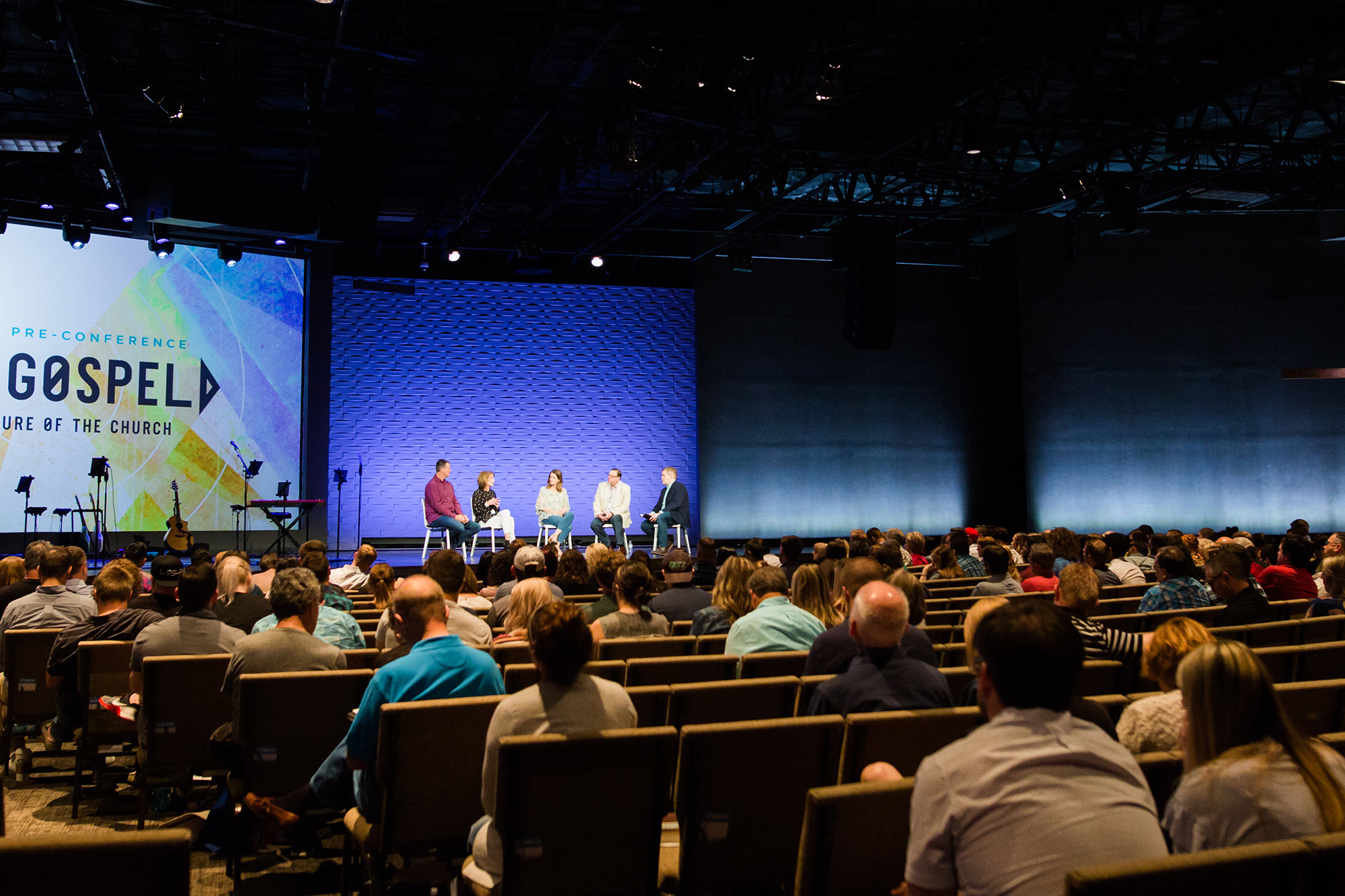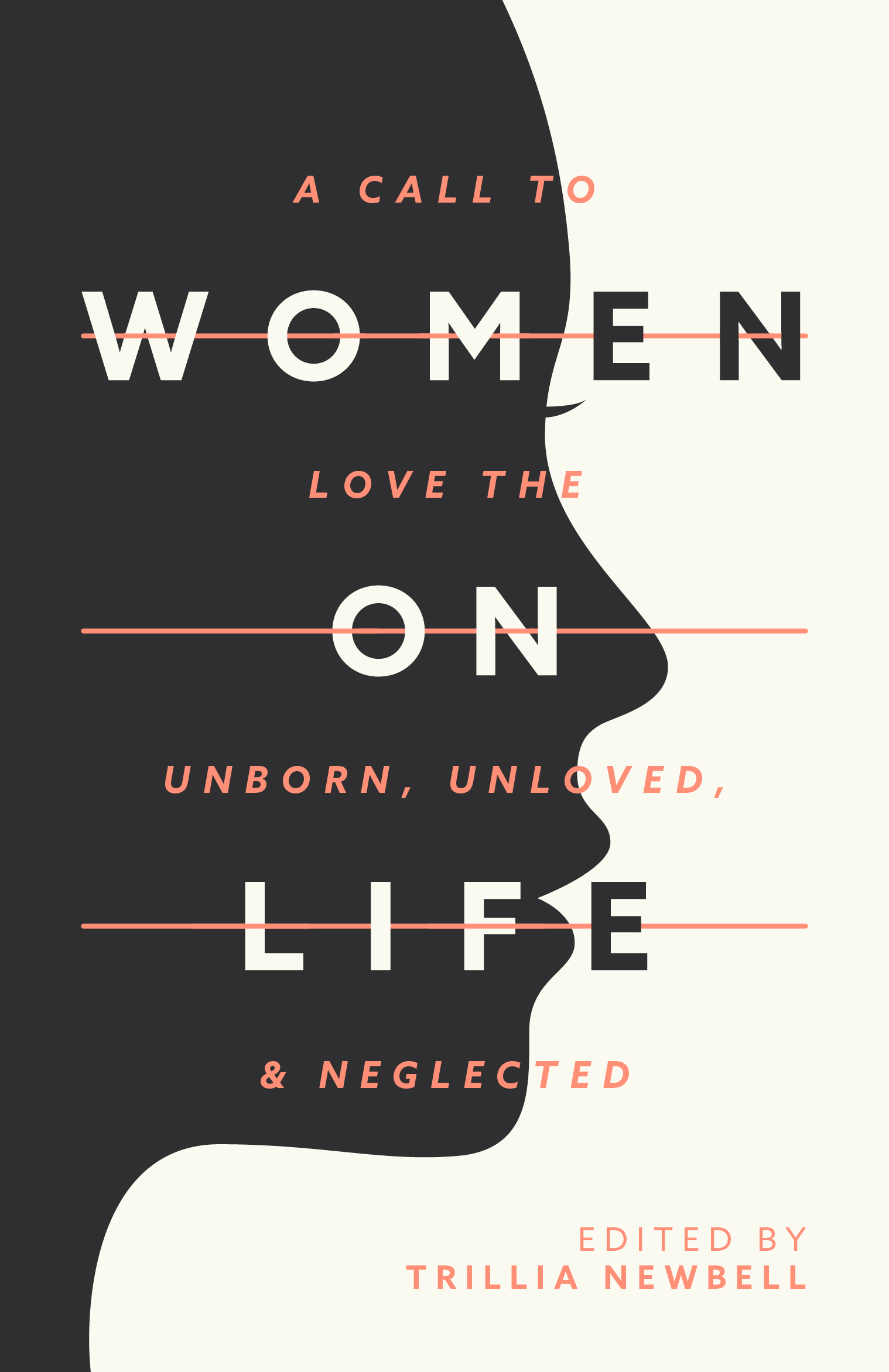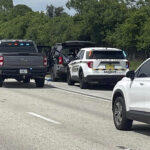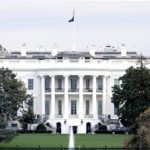
[SLIDESHOW=48174,48175]DALLAS (BP) — The Gospel of Jesus will remain the answer to the church’s challenges into the future, speakers said at a conference June 8-9 prior to the Southern Baptist Convention’s annual meeting in Dallas.
Southern Baptist pastors and other leaders addressed how the Gospel should shape the church’s ministries and outreach during keynote messages and panel discussions at the event, which was titled “The Gospel and the Future of the Church.” The Ethics & Religious Liberty Commission (ERLC) and The Village Church co-hosted the pre-conference in partnership with Southern Baptist Theological Seminary. The event was held at The Village Church’s Flower Mound campus in metro Dallas.
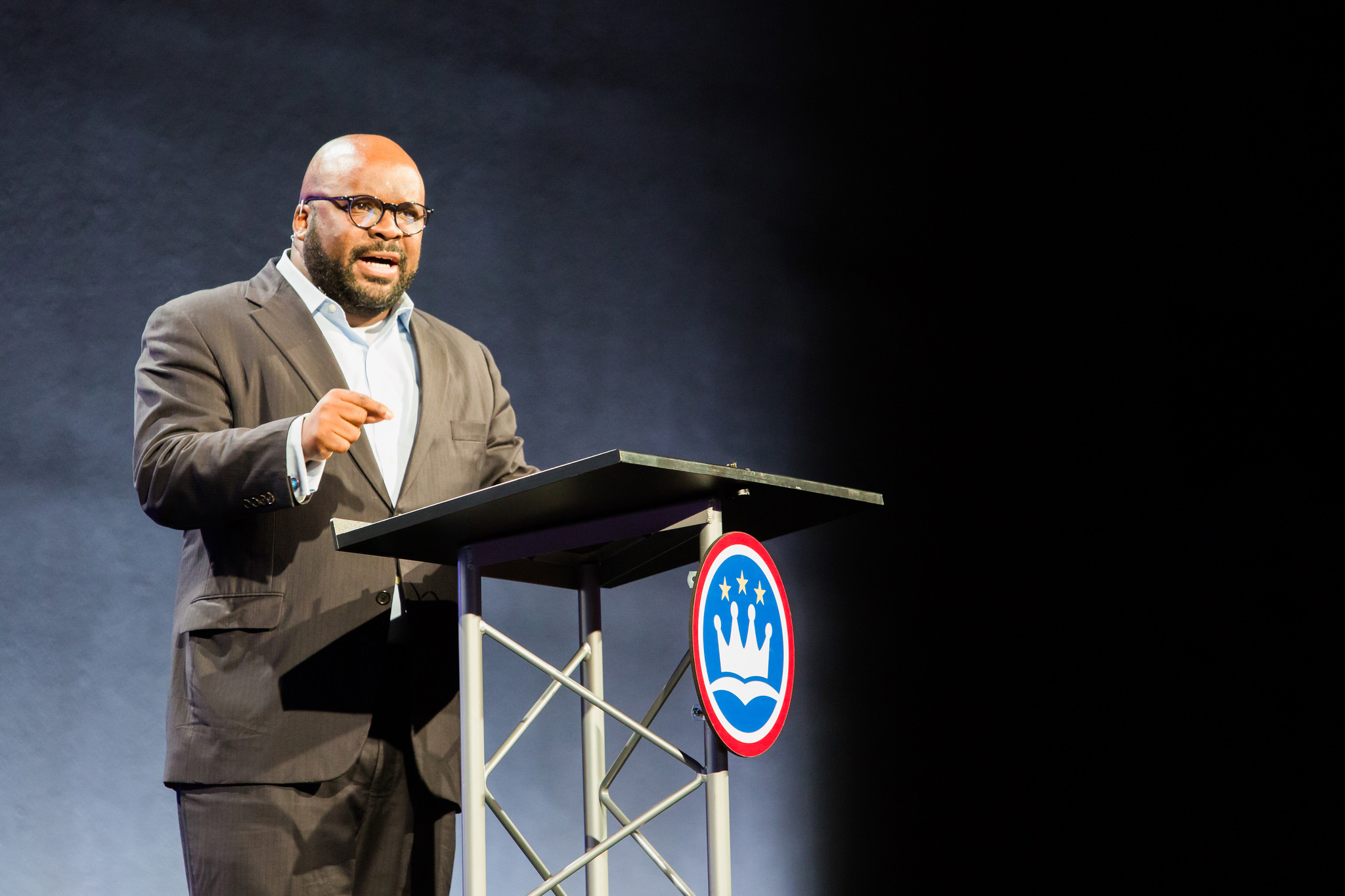 H.B. Charles, pastor-teacher of Shiloh Metropolitan Baptist Church in Jacksonville, Fla., told attendees, “For us to be effective witnesses as the church of Jesus Christ in our time, we must get the Gospel in, we’ve got to get the Gospel right, and we’ve got to get the Gospel out.”
H.B. Charles, pastor-teacher of Shiloh Metropolitan Baptist Church in Jacksonville, Fla., told attendees, “For us to be effective witnesses as the church of Jesus Christ in our time, we must get the Gospel in, we’ve got to get the Gospel right, and we’ve got to get the Gospel out.”
In a keynote based on Romans 1:16-17, Charles said the passage demonstrates Christians should live, witness, serve, minister, preach, teach and suffer with confidence in the Gospel because it is “the power of God,” “reveals the righteousness of God” and “affirms the Word of God.”
Charles, president of this year’s SBC Pastors’ Conference, said the most important question regarding the Gospel and the future of the church is: “Do you believe it? Declare it with confidence.”
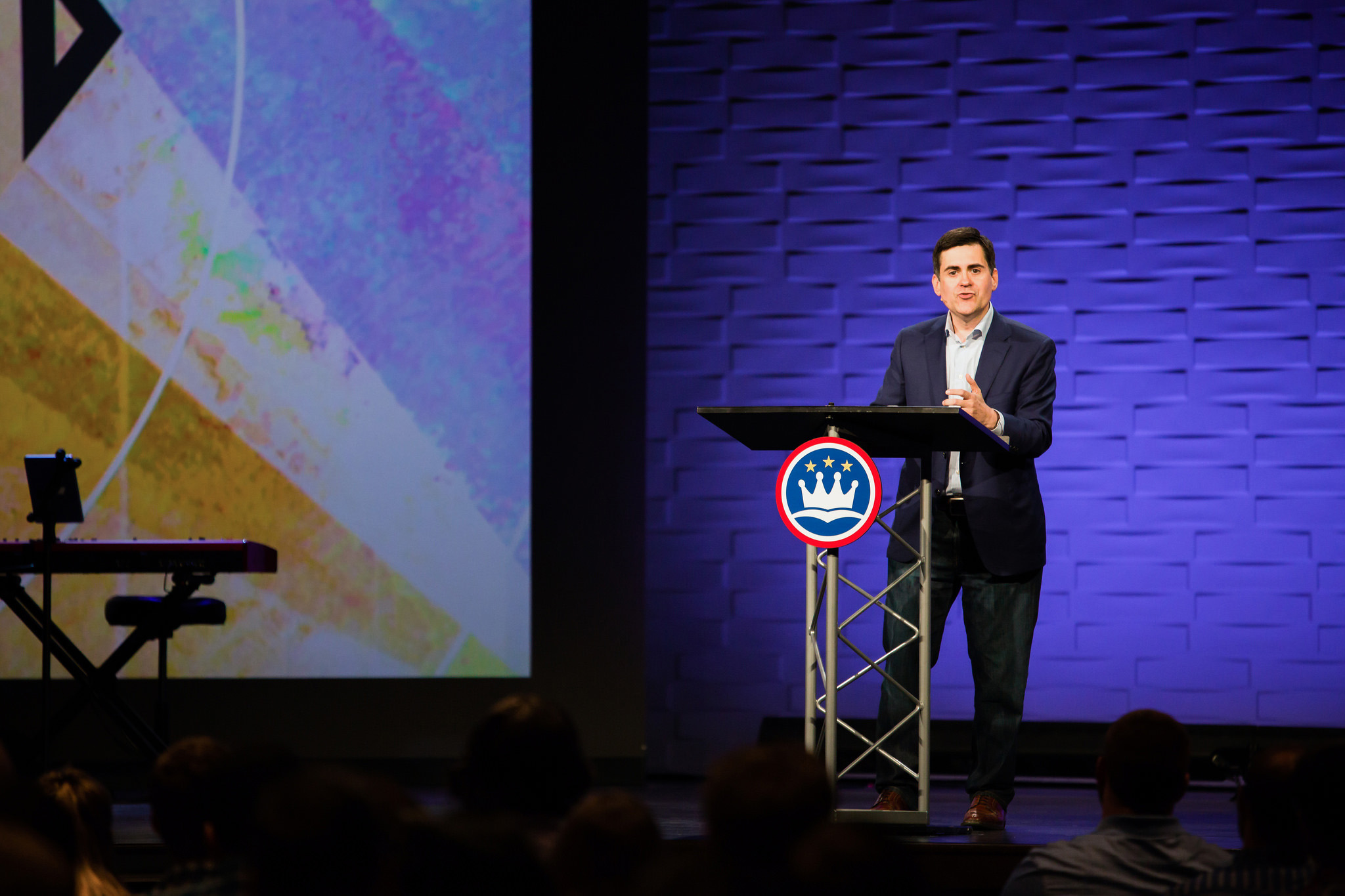 ERLC President Russell Moore said Americans are living in a time of instability and animosity. “People are saying things to one another they never would have said before,” he told the audience, which consisted of more than 560 registrants.
ERLC President Russell Moore said Americans are living in a time of instability and animosity. “People are saying things to one another they never would have said before,” he told the audience, which consisted of more than 560 registrants.
The sign to the culture God has given through His people is one of weakness, Moore said. “We do not boast in ourselves, but we proclaim our own brokenness and sinfulness and our own need for grace.
“We are the people who ought to understand and know the culture cannot make us right even if we were to take it over and do it exactly the way we think it ought to be run,” he said. “The church must be holy and set apart, not in order to say to the outside world, ‘Look how much superior we are to you,’ but because we are the people who are saying, ‘We have been through judgment day, and we have been found guilty. And we stand before you with the message that there is redemption and reconciliation found in the blood of Jesus Christ.'”
R. Albert Mohler Jr., president of Southern Seminary, said America’s increasing secularism is demonstrated in data that show one of five adults overall and one of three adults under 30 years of age now identify as “nones,” meaning they have no religious affiliation.
In the face of this increasing secularism, Mohler said the answer for Christians is: “We’re going to do and we must do and we are called to do exactly what the church was called to do in the First Century.
“This is where Christ’s people say, ‘Jesus Christ is Lord, and we have the Gospel of the cross and an empty tomb, and we know that Jesus saves, and we know that the cross is not now all of a sudden foolishness to those who are perishing,” Mohler told the audience. “It always has been. And until every knee bows and every tongue confesses that Jesus is Lord, it always will be.”
Matt Chandler, lead pastor of The Village Church, said the fall from favor of American Christians “in a single generation is going to tempt us to sell out and reorient in a thousand different ways.”
“Courage rooted in anything other than the glory of God will not weather where you and I are going,” Chandler said. Christian courage, he said, looks like: (1) Christian integrity; (2) devotion, specifically among non-clergy; and (3) hospitality.
“Integrity means owning and repenting, sometimes publicly,” Chandler told attendees. “Christian courage looks not like withdrawal but active engagement through hospitality, opening our home, sharing our table in gladness.”
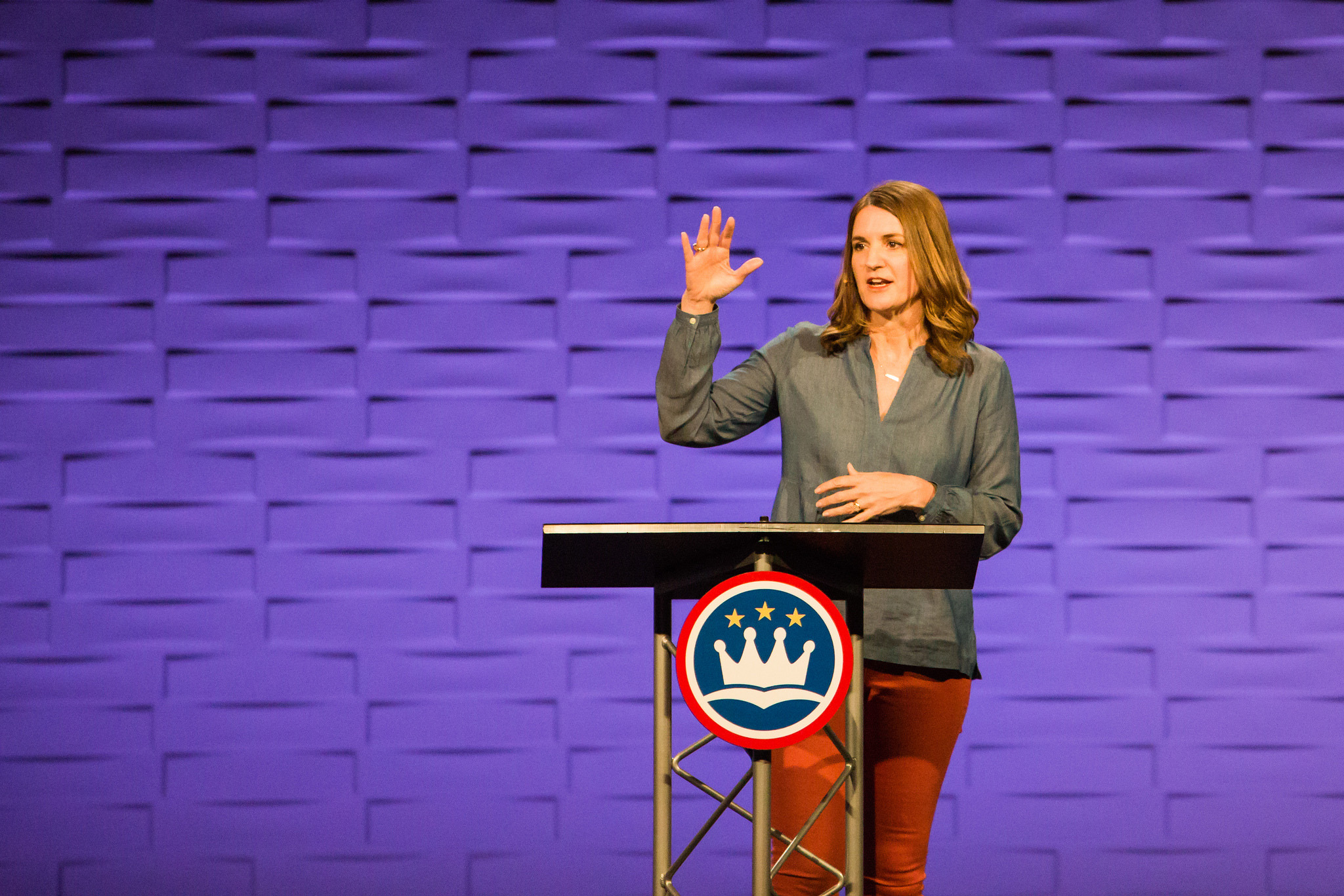 Jen Wilkin, The Village Church’s director of classes and curriculum, said the church faces a major problem of “biblical illiteracy.”
Jen Wilkin, The Village Church’s director of classes and curriculum, said the church faces a major problem of “biblical illiteracy.”
“The church is staring into a post-Christian culture, and it will not do for us to not know firsthand our sacred text,” she told the audience. “The problems that beset the church with regard to doctrine and with regard to weak faith almost always relate to having only a secondhand knowledge of our text.”
Biblical literacy, Wilkin said, “guards against false teaching,” “undergirds the study of doctrine,” and “diminishes the expert-amateur divide by giving everyone tools to know the Bible better themselves.”
J.D. Greear, pastor of The Summit Church in the Raleigh/Durham, N.C., area, and an announced candidate for SBC president this year, said the Acts 16 account of the conversions of a successful businesswoman, a slave girl and a jailer in Philippi explain how to engage different kinds of unbelievers with the Gospel.
The businesswoman, Lydia, was a spiritually interested person who became a Christian through an evangelistic Bible study, but the other two were reached “through acts of spiritual, physical and economic deliverance,” Greear told the audience.
The jailer, a cynic, observed the “inexplicable joy” Paul and Silas possessed amid their pain as prisoners and was the “recipient of their extravagant grace,” he said. “What if we in the church, especially in the coming days, looked at pain or persecution or even discrimination not as God’s punishment, not as going backwards in the community, but as first and foremost as a chance for us to put on display an otherworldly joy.”
In addition to the keynote addresses, panel discussions were held on the Gospel and the future of preaching, marriage and family, evangelism and church planting, theological education, multi-ethnic ministry and the Southern Baptist Convention.
